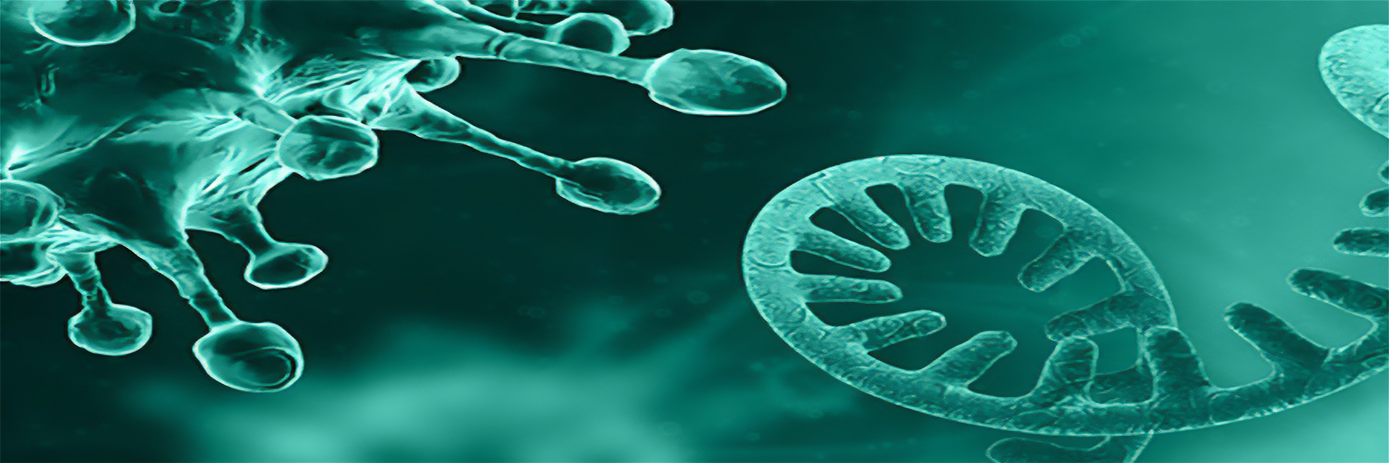
Article highlights
- This article describes the short and long-term impact of SARS-CoV-2 infection on male reproductive health based on two studies carried out in Belgium.
- Learn about how our sexual gametes are impacted by viral infections and the key role our immune response plays.
- Understand the differences between male and female sexual gamete vulnerability to foreign pathogen invasions.
A SARS-CoV-2 infection is typically associated with a runny nose, a sore throat, fever, and perhaps a cough. But for men and their partners, this virus can have more far-reaching effects as highlighted by two recent papers that examined the impact of SARS-CoV-2 on male reproductive health1,2. The health of our sexual gametes is oftentimes taken for granted and barely pondered upon, except of course, when the time comes to start a family. Admittedly, they play an extremely important role as carriers of trait-defining genetic material that are passed on to our offspring.
Sperms and eggs develop in so-called “immune-privileged” sites, namely the testis and ovaries, where physical barriers and other mechanisms protect these germ cells not only from invading pathogens, but also from our own immune system. Certain viruses (e.g., Zika, Ebola, Marburg viruses) however, have been known to cross this body-gamete immune barrier, creating local inflammation and in the case of Zika, more severe consequences such as birth defects in developing fetuses. Many of these viruses also persist in the semen post-infection, increasing the risk of sexual transmission.
The two studies followed 120 Belgium men and examined the short-term (1 week to 6 months) and long-term (1 year) impact of SARS-CoV-2 on sperm health. To study the risk of sexual transmission of SARS-CoV-2, researchers from Sonic Healthcare Benelux (AML, Antwerp) optimized the extraction of viral RNA from semen samples using the chemagic™ Viral DNA/RNA 300 H96 Kit (typically used for swabs or saliva) on the chemagic 360 instrument. PCR amplification was then performed with the PKamp™ SARS-CoV-2 RT-PCR Panel 1, where no SARS-CoV-2 RNA was detected in all 120 men, ruling out the likelihood of sexual transmission.
However, sperm quality as assessed by sperm concentration, motility, morphology, and DNA damage, were severely decreased after short-term convalescence from SARS-CoV-2 infection. These effects surprisingly did not correlate with COVID symptoms such as fever but rather with the immunological response that follows afterwards. A large proportion of the participants for example showed spikes in SARS-CoV-2 Nucleocapsid IgG antibodies which correlated with the drop in sperm DNA quality, while protecting antisperm antibodies (IgA and IgG-ASA) measured with the MAR test showed that peak progressive sperm motility post-COVID-19 is dependent on the patient's antibody response. Patients producing both IgA/IgG-ASA had the fastest and most complete recovery, while patients without IgA/IgG-ASA experienced slow and incomplete recovery.

Looking at the impact of SARS-CoV-2 on fertility in men, the immunologically induced sperm DNA damage in the first months post COVID-19 would reduce the chances of having progeny, a finding that also by the way happens in human papilloma virus (HPV)-infected couples. The same group had previously found women undergoing intrauterine insemination with HPV-infected sperm being four times less likely to get pregnant3.
When looking at long-term effects of SARS-CoV-2, it became clear that recovery of sperm back to normal health was also impacted by the initial immune response of the patient. Recovery time varied between individuals with two thirds of the participants showing full recovery in terms of sperm count and sperm motility whereas a few (< 10%) did not meet World Health Organization (WHO) cut-offs even after a year. The recovery tended to correlate with the patient’s immune response, as patients producing both IgA/IgG antisperm antibodies had the fastest and most complete recovery, patients with only IgA showed intermediate recovery and patients with no antisperm antibodies took the longest to recover. Sperm morphology and DNA damage also showed partial recoveries that correlated with the strength of the immunological response.
To produce gametes, especially spermatozoa, a special division process termed meiosis is needed. Meiosis is a process where a single cell divides twice to produce four cells containing half the original amount of genetic information. These cells are our sex cells – spermatozoa in males, oocytes in females. In males it takes around 102 days to produce 4 spermatozoa out of one spermatogonia (spermatogenic cycle). Although our immune response upon viral infection is quick, and produced cytokines inhibit meiosis, the sperm concentration reduction is only visible 43 days post COVID-19 infection. The problem lies in the fact that upon viral infection finished spermatozoa are available and could be altered by infecting virions.
The main goal of the immune response after a SARS-CoV-2 infection is to protect cell populations amplified through meiosis. Firstly, sperm production is decreased through temporal arrest of active meiosis, and secondly the sperm DNA is damaged preventing fertilization if transferred to the oocyte. Both mechanisms are temporal, and most sperm parameters return to baseline after infection. Demonstrating this vulnerability, the spermatozoa produced in the first spermatogenic cycle during SARS-CoV-2 infection showed greater levels of DNA damage in the study. Spermatozoa produced in subsequent cycles showed less DNA damage, indicating a waning immunological response as the viral infection progresses. Sperm concentrations were also the lowest in the first spermatogenic cycle and recovered in following spermatogenic cycles indicating temporal immune mediated arrest of active meiosis. The researchers postulated that these effects are mechanisms serving to limit the transfer of damaged DNA to our progeny.
Interestingly, the number of sexual gamete divisions in men are a million times over that in women, implying that viral infections pose a greater threat for males than for females. Indeed, in nearly all countries with sex-disaggregated data, males are found to experience greater COVID-19 mortality with a ~1.7 times higher risk of death compared to females4. These differences may arise from immunological differences between men and women as suggested by recent studies5,6. However, other cultural, socioeconomic, behavioral, and hormonal factors are expected to also play a role.
In conclusion, the two highlighted studies demonstrate that SARS-CoV-2 has a significant impact on male reproductive health, the extent of which is closely tied to the individual’s immunological response. Gaining a clearer insight on these immunological mechanisms along with gender-related differences can help inform our approach to the treatment and care of patients suffering from COVID-19 and potentially other infectious diseases.
About AML
Sonic Healthcare Benelux is a strategic network of clinical laboratories and collection centers spread throughout Flanders: AML (Antwerp), AML West (Ardooie), Labo (Genk) and Medvet (Antwerp). We are part of the Sonic Healthcare group, one of the largest laboratory groups in the world.
In addition to offering a wide range of traditional routine analyses on human and veterinary samples, our laboratories are further specialized in immunological, molecular, toxicological, occupational medicine and judicial analyses.
In each of our laboratories, the care of each patient and service in accordance with your wishes and needs is central. “We take it personally” is therefore the slogan of our laboratory group. Quality, innovation and integrity are the spearheads of our policy.
Thanks to our broad scientific interest and many years of experience, our team of clinical biologists, pathologists and veterinarians can always assist you with tailored advice. All of them are experts in the various fields of laboratory medicine. Our dynamic team of employees look forward to being your partner in the care of your patients.
References:
- Donders, G. G. G., Bosmans, E., Reumers, J., Donders, F., Jonckheere, J., Salembier, G., Stern, N., Jacquemyn, Y., Ombelet, W., & Depuydt, C. E. (2022). Sperm quality and absence of SARS-CoV-2 RNA in semen after COVID-19 infection: a prospective, observational study and validation of the SpermCOVID test. Fertility and Sterility, 117(2), 287–296. https://doi.org/10.1016/j.fertnstert.2021.10.022
- Depuydt, C., Bosmans, E., Jonckheere, J., Donders, F., Ombelet, W., Coppens, A., & Donders, G. (2023). SARS-CoV-2 infection reduces quality of sperm parameters: prospective one year follow-up study in 93 patients. EBioMedicine, 93, 104640. https://doi.org/10.1016/J.EBIOM.2023.104640
- Depuydt, C. E., Donders, G. G. G., Verstraete, L., vanden Broeck, D., Beert, J. F. A., Salembier, G., Bosmans, E., & Ombelet, W. (2019). Infectious human papillomavirus virions in semen reduce clinical pregnancy rates in women undergoing intrauterine insemination. Fertility and Sterility, 111(6), 1135–1144. https://doi.org/10.1016/J.FERTNSTERT.2019.02.002
- Scully, E. P., Haverfield, J., Ursin, R. L., Tannenbaum, C., & Klein, S. L. (2020). Considering how biological sex impacts immune responses and COVID-19 outcomes. Nature Reviews Immunology 2020 20:7, 20(7), 442–447. https://doi.org/10.1038/s41577-020-0348-8
- Takahashi, T., Ellingson, M. K., Wong, P., Israelow, B., Lucas, C., Klein, J., Silva, J., Mao, T., Oh, J. E., Tokuyama, M., Lu, P., Venkataraman, A., Park, A., Liu, F., Meir, A., Sun, J., Wang, E. Y., Casanovas-Massana, A., Wyllie, A. L., … Iwasaki, A. (2020). Sex differences in immune responses that underlie COVID-19 disease outcomes. Nature 2020 588:7837, 588(7837), 315–320. https://doi.org/10.1038/s41586-020-2700-3
- Sauerwald, N., Zhang, Z., Ramos, I., Nair, V. D., Soares-Schanoski, A., Ge, Y., Mao, W., Alshammary, H., Gonzalez-Reiche, A. S., van de Guchte, A., Goforth, C. W., Lizewski, R. A., Lizewski, S. E., Amper, M. A. S., Vasoya, M., Seenarine, N., Guevara, K., Marjanovic, N., Miller, C. M., … Troyanskaya, O. G. (2022). Pre-infection antiviral innate immunity contributes to sex differences in SARS-CoV-2 infection. Cell Systems, 13(11), 924-931.e4. https://doi.org/10.1016/j.cels.2022.10.005
For research use only. Not for use in diagnostic procedures.
Revvity, Inc. does not endorse or make recommendations with respect to research, medication, or treatments. All information presented is for informational purposes only and is not intended as medical advice. For country specific recommendations, please consult your local health care professionals.

































